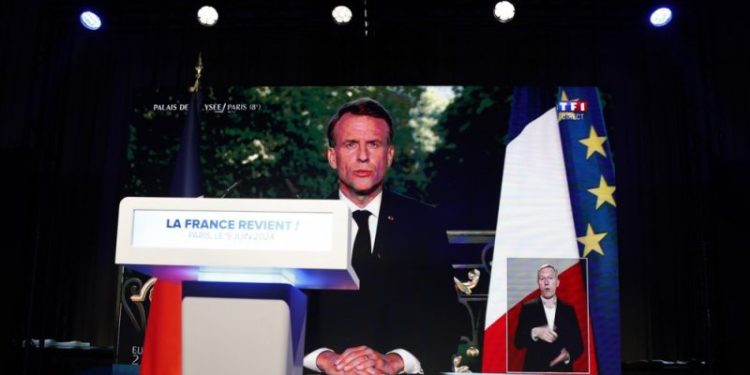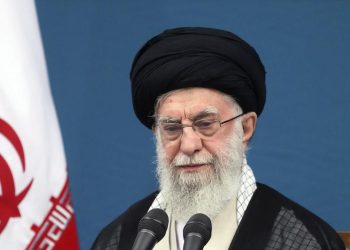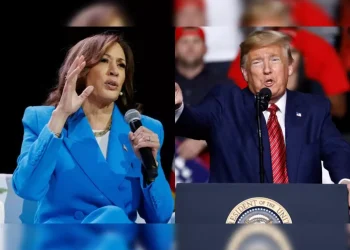On Sunday, June 9, French President Emmanuel Macron declared he was dismissing parliament following his centrist alliance’s defeat in EU votes by the far-right. Macron announced that July 7 and June 30 would be early legislative elections. To choose the 720 members of the European Parliament, hundreds of millions of Europeans will cast ballots.
Macron declared that the results of the EU election are “not a good result for parties who defend Europe” and that he cannot pretend that nothing has happened. He also said that France and Europe were in danger due to the rise of nationalists.
Macron’s team suffered a crushing loss at the hands of the National Rally (RN) party. Predictions showed that it received more than twice as many votes as the centrist alliance led by the head of state.
Based on projections from multiple polling firms, the RN’s list, headed by Jordan Bardella, received between 32.3 and 33% of the vote, while Macron’s alliance, led by his Renaissance party, received between 14.8 and 15.2 percent.
“Right-wing parties are making progress across the continent. I am unable to accept the circumstances,” Macron remarked.
“I have chosen to offer you the option… I will dissolve the National Assembly tonight as a result.
“This is a bold and weighty decision, but it also shows confidence. I have faith in you, my fellow citizens, and in the ability of the French people to decide what’s best for themselves and their children.”
Preliminary results showed that all three of the parties in German Chancellor Olaf Scholz’s administration were behind the conservatives and the far right, which was another setback for his coalition.
The outcome prompted demands for the center-left Scholz to resign or open the door for fresh elections from the winning conservative CDU-CSU party.











